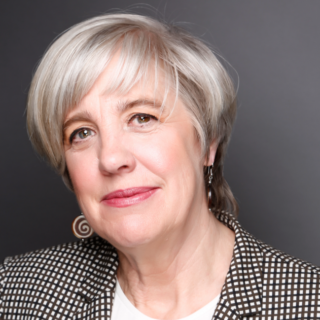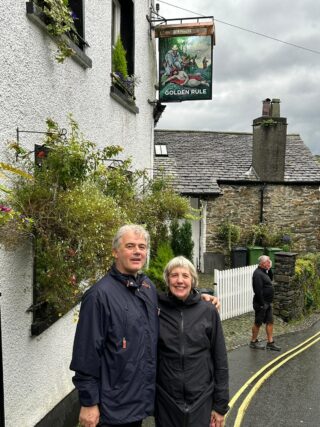The Imaginal Cells with Kim Polman (podcast)
25 Jun
While humans debate climate change and watch the plastic building up in our oceans, there are a growing number of people eager to engage in fundamental change.
In 2017, Kim Polman took on the task of co-writing Imaginal Cells, using the concept of metamorphosis to unite the messages of global luminaries. In a recent interview with Dawna Jones, Polman talks about the power and universality of the Golden Rule. Below are some of the excerpts – to hear in full, click here.
How did you land on the Golden Rule and what does it mean to people who seek to make a difference in the world today?
I learned the Golden Rule as a child from my mother, as most people do, and I watched my mother live it. In recent years, I wondered how well known it is as a concept and if a wider knowledge of it would ease some of the tensions that seem to be increasing worldwide.
Several books alerted me to the fact that it is probably the only universal principle the world shares. It is not always known as the Golden Rule, and there are various versions of it, but the idea is the same around the world - culturally, historically, religiously. It is the core of being human, as a mammal.
Neuroscience actually proves, in its simplest explanation, that serving others is a true source of happiness and peace, common to all humanity. Geneticists show us now that we are 99% the same genetically. Let’s focus on what we have in common rather than our few differences. This belief is core to focusing on our similarities.
The title, Imaginal Cells, is a curious one. What does it mean and how is it relevant to local and global change agents?
Imaginal cells are the cells in the decaying caterpillar that hold the vision of the butterfly. As the caterpillar decays the imaginal cells become active. The decaying cells feel threatened and try to fight the new cells. But the new ones emit frequencies, and start to form clusters. Eventually the decaying cells give up. The imaginal cells multiply and turn into a beautiful butterfly.
It is a very practical metaphor. The caterpillar gorging is like our western style over-consumption. We are gorging on the earth at an excessive level. The caterpillar cells fighting against the imaginal cells represent the old way of doing things, greed, linear economy, rampant self-righteousness, etc. that resist the new way, of a more inclusive and responsible way of doing things. The frequency the imaginal cells emit represents, for us, the Golden Rule, a universal principle that if sung together, the world would be a better place.
This part is an important part of our story which is that we cannot solve the issues of the world alone. The cells unite around the same principle to find each other, which is the same as synchronicity. Global issues are all a result of local activities.
Why did you decide to invest time into this book... what activated your own passion for leading change?
I am married to a man of action. I have witnessed his journey to be Mr. Corporate Sustainability. I have seen how it is to convince others to take this journey. I read many of the books he brought home. One book by Jonathon Porritt, The World We Made, was seminal in my own thinking. He projects to 2050 what we have solved and not solved and what are the consequences. Though some things were not solved, it is actually quite hopeful, because he states clearly that we have the technology already to solve the challenges we and our earth face because of our own activities.
Somehow I decided that I must help him and others get out this message. We live in such a rational world, but reasoning is not enough in this case. The Golden Rule touches hearts and provides the motivation to change.
What did you learn from pulling all the contributions together for the book?
I realised that the Golden Rule is applicable to all issues of the world. Each of our authors work on different topics, different problems, but there is a Golden Rule for each one.
I also realised that the GR has 3 requirements:
- It requires empathy – we need to listen to the other. Right away this opens the path to solutions. It disarms layers of defences we have built up. It allows us to find points in common, from which to build upon.
- It requires courage to take responsibility. It is so easy to sit back and wait for someone else to solve the issues, most likely complaining in the process that it is not being done better or fast enough.
- The Golden Rule requires action. The different versions say, don’t do, do this, treat others, don’t treat others. It is always about doing or not doing things.
The Golden Rule is, as as far as I can see, the only principle that ties all of humanity together.
Any others tips for readers/listeners on how to make sense of a world in volatile flux?
We all struggle with the volatility and uncertainty facing us as well as the urgency with the looming 2 degree planet limits. We really do not know what will happen to the earth’s systems.More immediate is the uncertainty caused by some of our political leaders. Changing these bigger forces seems monumental, but humans have created these situations, and humans can correct things. Each of us needs to start where we are, taking that responsibility to choose to be a builder and fixer in our own spheres of influence. Simply put: Treat others and the planet as you wish to be treated.


